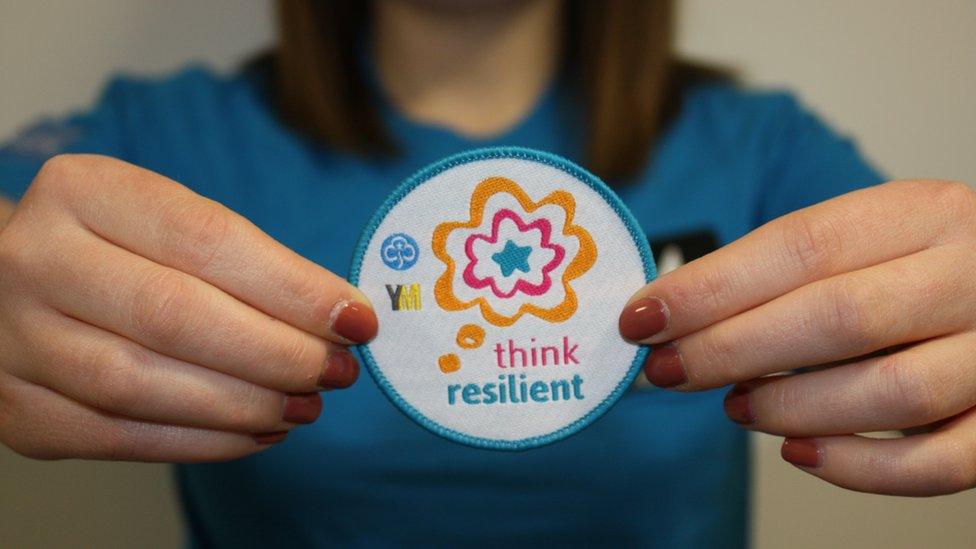Pressure to look perfect hits girls' confidence, say Guides
- Published
- comments
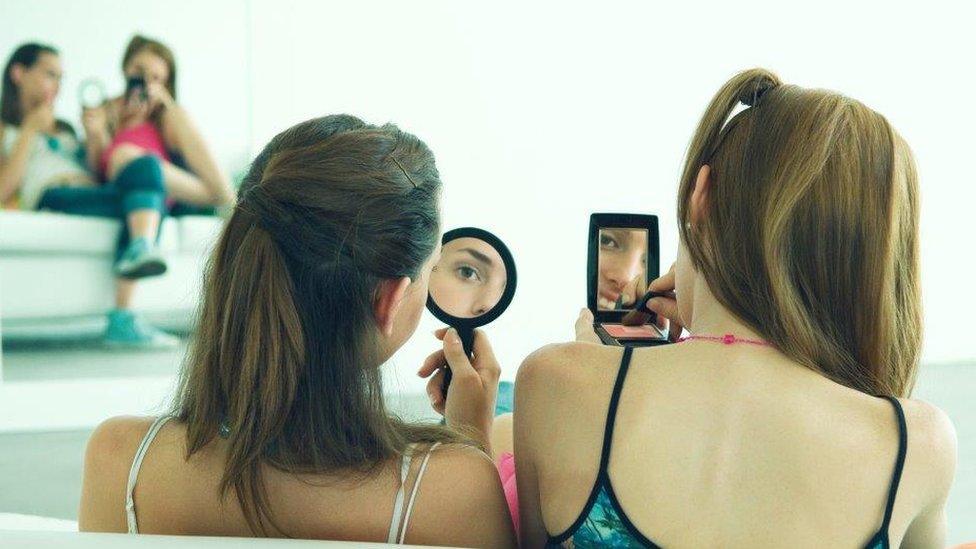
Girls say concerns about their looks are holding them back
Girls in the UK are markedly less confident about their looks than they were five years ago, research by Girlguiding suggests.
Just 61% of 1,627 seven- to 21-year-old girls polled for the 2016 Girls' Attitudes Survey, external felt happy about their bodies, down from 73% in 2011.
Girls as young as seven face "intense and unobtainable appearance pressures to be perfect", say the authors.
Girlguiding director Becky Hewitt called the impact "shocking".
"Girls have told us to stop judging them on how they look," she said.
"Every day in guiding, girls inspire us with their bravery, sense of adventure and their kindness.
"We are calling on everyone to show girls that they are valued for who they are - not what they look like," said Ms Hewitt.
The report says body image is an issue which surrounds girls every day - in the media, via social media and in other people's attitudes.
Among the 559 seven- to 10-year-olds who took part in the survey:
36% said they were made to feel the most important thing about them was their looks
38% felt they were not pretty enough
35% agreed women were judged more on their appearance than their abilities
23% felt they needed to be perfect
And these feelings were far more prevalent among the more than 1,000 11- to 21-year-olds who took part:
80% felt their looks were the most important thing about them
66% felt they were not pretty enough
93% agreed women were judged more on appearance than ability
47% believed their looks held them back most of the time
61% felt the need to be perfect
Girls told the researchers lack of body confidence not only stopped them wearing certain clothes and having their pictures taken - but also prevented them exercising, speaking up in class and socialising.
"I think more girls are judged on their appearance than boys," 10-year-old Lyra told the researchers.
"I don't think it's fair that men get treated differently to women.
"You have to treat everyone the same."
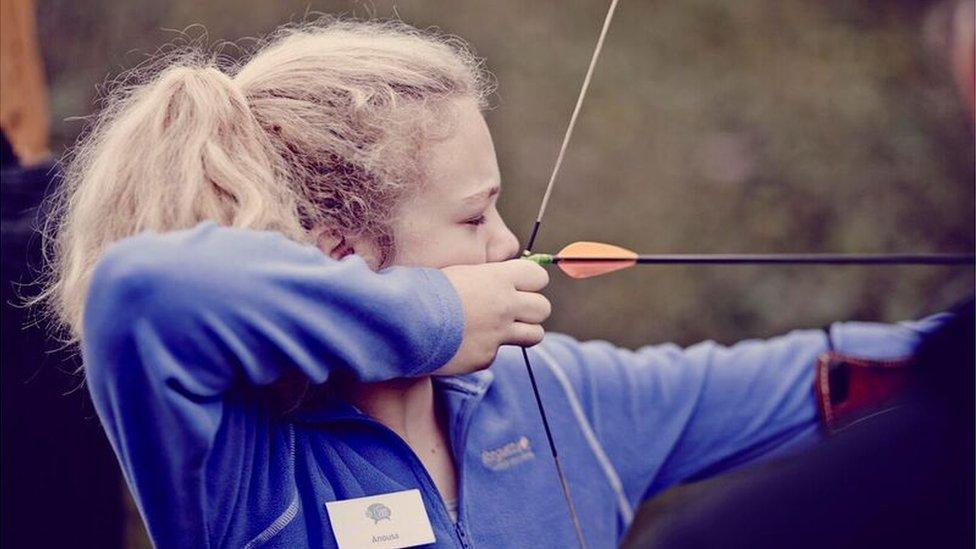
Girls should be able to try new activities without worrying about their appearance, says Girlguiding
Another of the younger participants called for an end to girls being judged on their bodies and being made to "feel bad about themselves".
While Liddy Buswell, a Brownie leader aged 18, said she had experienced some of the issues first hand.
"I've witnessed girls unwilling to speak to groups because of how they look, I've heard girls saying they've been called names at school and aren't confident trying new activities as a result," she said.
"No girl should have to worry about the way she looks.
"This year's survey is a damning indication that something needs to be done to tackle this growing issue."

Guide peer educators' views
Sharon, 20, says: "One of the biggest problems I come across when working with young girls is the lack of confidence they have in themselves.
"Often, concerns about the way they look makes girls feel uncomfortable about taking part in exercise and sport.
"There are pressures from so many places, from advertising on TV and in magazines to billboards in the street, social media, computer games, online videos and comments from others.
"Girls are constantly connected on social media and are bombarded with images of the 'ideal woman'. Social media also creates a space where people can comment on girls' appearance at any time of day or night."
Martha, 21, says: " As with most problems, the cause cannot be pinpointed, because a multitude of sources can be seen to apply pressure on girls and young women.
"The main source, and arguably the most obvious, is the portrayal of women in the media.
"Girls, and adults too, struggle to tell if images have been Photoshopped so assume that the women in the media are real, and that the way they are portrayed is obtainable.
"This causes an unrelenting pressure for girls and young women to conform to the images they see around them and try and replicate that 'perfect body'.
"Another source is language we use around girls and young women, typically focusing on their physical attributes rather than their achievements."

Girlguiding has launched a social media challenge to the public to compliment the young women and girls they know on their achievements and personal qualities rather than their looks, using the hashtags #youareamazing and #girlsattitudes on Twitter, Facebook and Instagram.
Dr Carole Easton, chief executive of the Young Women's Trust, which recently published research, external suggesting high levels of anxiety and despair among young women, agreed more needed to be done to tackle gender stereotypes, starting from childhood.
"Otherwise we will continue to see lower levels of wellbeing, lower confidence and greater worries about the future amongst young women," she said.

Head teacher's concern
Jenny Brown, head of the independent St Albans High School for Girls, said the issue of image was "without a shadow of doubt" high on her agenda.
"It is completely entwined with the huge explosion in social media," said Mrs Brown, speaking at the annual meeting of the Headmasters and Headmistresses Conference in Stratford-upon-Avon.
Mrs Brown suggested the effect of social media could be like a mirror for teenage girls, reflecting their lives back on themselves and exacerbating a natural tendency to be overly self-conscious.
Schools and parents should encourage girls to "focus on things bigger than themselves" instead and find windows on the world rather than mirrors, she said.

A spokeswoman for the Department for Education said: "Body image can be a distressing issue and that's why we are supporting schools to discuss this with their pupils, so they can learn to respect themselves and others."
The survey was carried out for Girlguiding by Childwise between March and May this year.
The girls and women who took part were a representative sample from across the UK, not restricted to those involved in guiding.
- Published22 September 2016
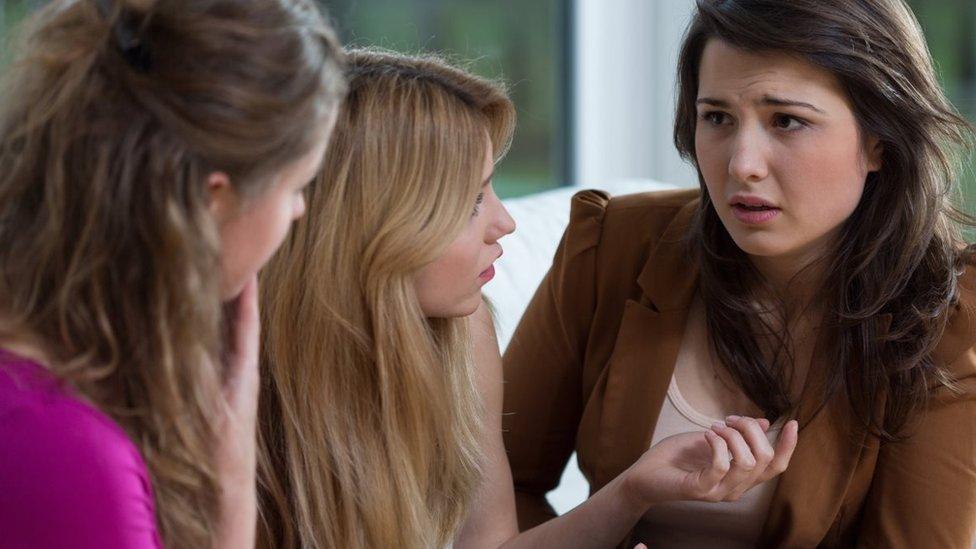
- Published12 September 2016
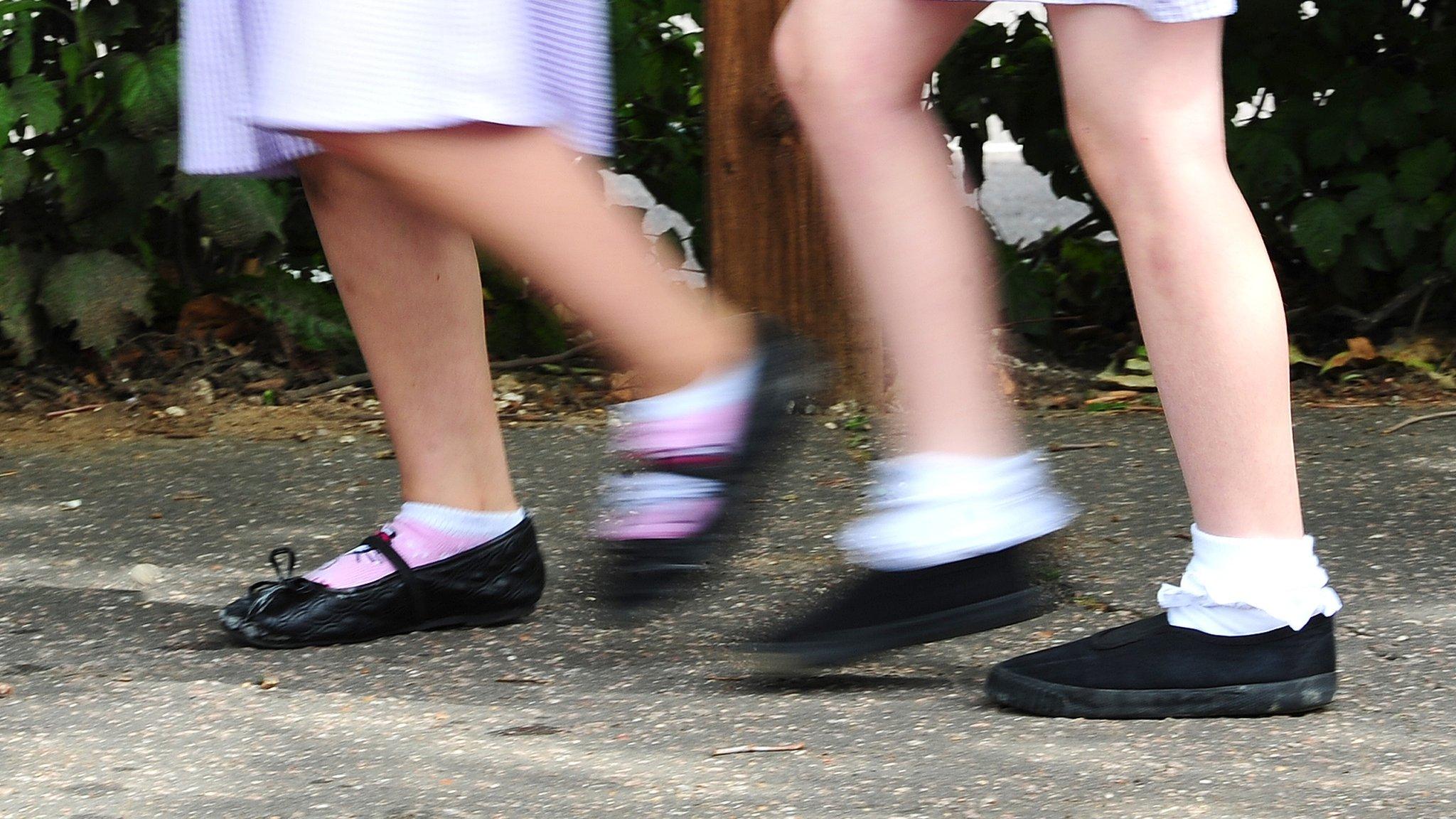
- Published25 July 2016
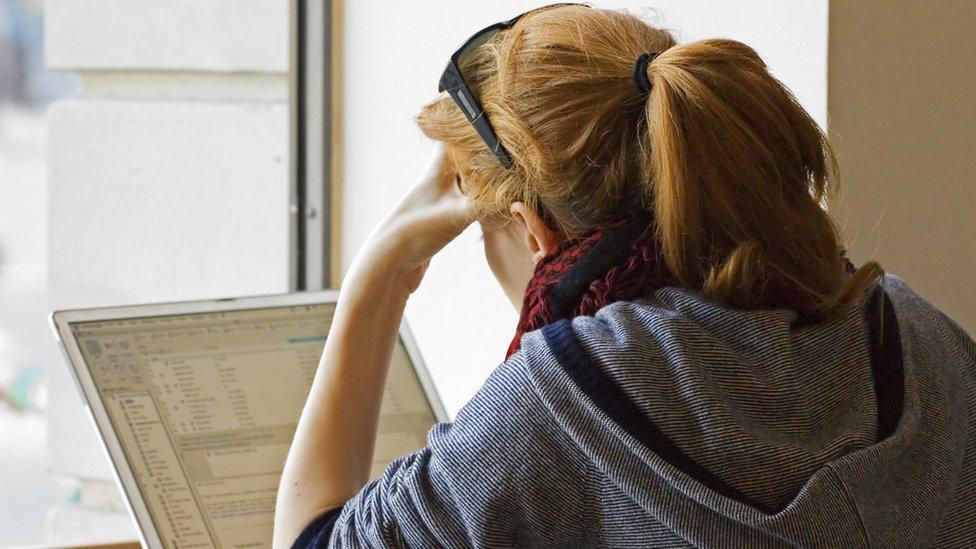
- Published15 March 2016
